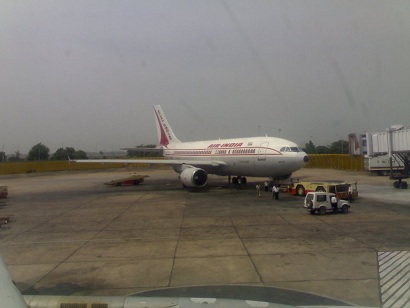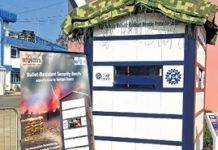The country’s security establishment is concerned about revenue becoming too much of a constraint for airport security at a time when there is a heightened threat to smaller air strips in tier 2 towns that are guarded by local police having little expertise in this area. Lathi-wielding policemen were seen chasing away dogs from the runway at Surat airport after a plane ran into a buffalo there on November 6 in what was a close shave for passengers. The Surat administration has now asked the Airports Authority of India (AAI) to station Central Industrial Security Force (CISF) personnel there to provide security.
CISF provides security at 59 airports, including India’s biggest facilities. Juhu airport in Mumbai, a hub for private flights and helicopter operations, only has unarmed guards and a demand for CISF presence has been hanging fire for the last three years. There are about 30 airports that are waiting to hand over security functions to the CISF, a senior government official said.
This official said a recent review at the level of National Security Advisor, Ajit Doval, in light of the terrorist attack at Karachi Airport in June that left 36 people dead, threw up “serious concerns” over inadequate security at non-CISF guarded terminals. The key stumbling block is revenue, said officials of the Airports Authority of India (AAI) and the civil aviation ministry. AAI has to pay CISF for managing security and this costs about 50% more than the local police, according to the civil aviation ministry.
“That is because the local police does its job and goes home but the cost of boarding and lodging besides better security equipment is to be paid in case of CISF,” the official said. Many of these airports generate low revenue in any case. A passenger service fee (PSF) of about Rs 130 is charged by AAI from each passenger to fund airport security. But against an annual security expenditure bill of roughly Rs 1,200 crore, AAI only manages to collect Rs 800 crore.








